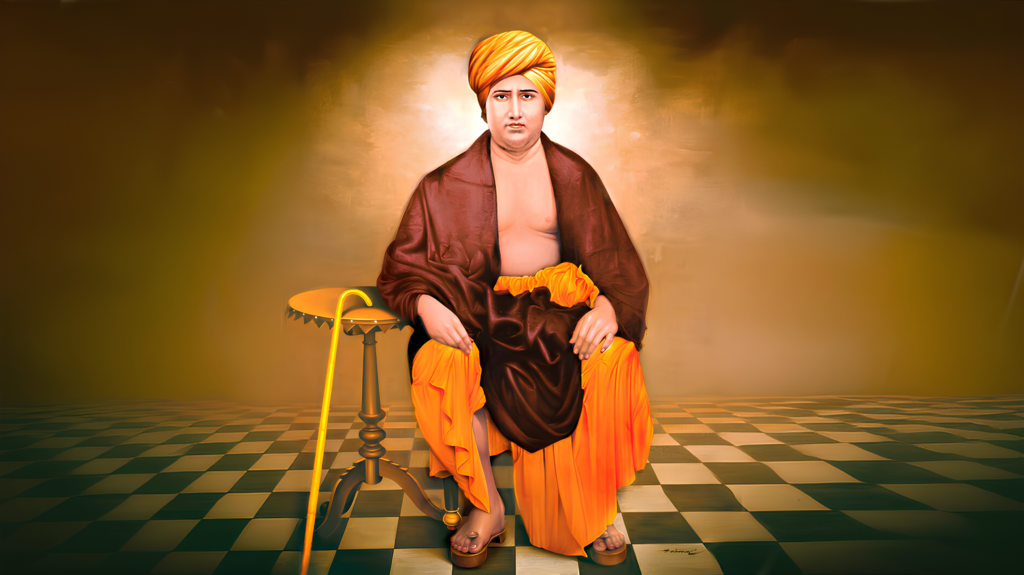The Story of Menstruation in Sanātana Dharma: Myths, Truths, and Ancient Wisdom

Namastey Shikshanarthi’s
Once upon a time, a curious young girl named Meera sat with her grandmother after school. Her friends had teased her for not visiting the temple during her first period. “Am I impure, Dadi?” she asked, tears rolling down her cheeks.
Her grandmother smiled gently and said, “Let me tell you a story, one that goes back to the heart of our culture. Menstruation, my dear, is not about impurity. It’s about life itself.”
A Tale of Misunderstandings
Grandmother began, “Long ago, our ancestors saw menstruation as something sacred. It symbolized a woman’s power to give life. But over the years, misunderstandings crept in. People twisted the teachings of our scriptures. They began saying things like women shouldn’t visit temples, touch holy items, or even perform daily chores during their periods.”
Meera listened intently. “But why, Dadi? Is it written in our scriptures?”
“No, my child,” her grandmother replied. “The truth is, our scriptures and traditions respected women deeply. They never called menstruation impure. In fact, it was celebrated as a natural and divine process. Let me explain.”
Celebrating Womanhood in Ancient India
“Did you know,” Dadi continued, “in ancient India, a girl’s first period was a festival? When a young girl became a woman, her family and even the entire village celebrated this milestone. There would be rituals, songs, and gatherings. It was a way of saying, ‘Look, a new creator of life has been born!’”
Meera’s eyes sparkled with wonder. “Like a birthday party?”
“Yes, but even more meaningful,” Dadi chuckled. “Take the Kamakhya Temple in Assam, for example. Every June, it is believed that the goddess Kamakhya herself menstruates. Thousands of devotees come to celebrate this divine event. Does that sound like people thought menstruation was impure?”
“No, Dadi! That sounds beautiful!” Meera exclaimed.
The Wisdom of Ayurveda and Menstrual Practices
“Now let me tell you something magical about your body,” Dadi said. “Ayurveda, our ancient system of medicine, has a special explanation for menstruation. It says our bodies are made of three doshas: Vata (motion), Pitta (heat), and Kapha (stability). During menstruation, the Vata and Pitta doshas naturally increase to help your body manage the changes it’s going through.”
Meera tilted her head. “What happens because of that?”
“When Vata and Pitta are high, your body needs rest. That’s why our elders suggested avoiding things like bathing in cold water, running around, or even talking loudly. These activities can upset the balance of your doshas and make you feel worse.”
“What about cutting nails or combing hair? My teacher says those are superstitions,” Meera asked.
“They’re not superstitions, dear. During menstruation, your body is a little weaker. Combing your hair or cutting your nails might cause breakage or discomfort. These practices were just precautions to keep you safe.”
Why Are Temples Restricted During Menstruation?
“But Dadi, why can’t we go to temples during our periods?” Meera asked.
“Ah, that’s a good question!” Dadi said. “The scriptures don’t forbid women from visiting temples. But here’s what happens: during your period, you may skip bathing sometimes. In Sanātana Dharma, bathing is a must before entering a temple, so people thought it was better to avoid it altogether.”
“But there’s another reason too,” Dadi continued. “Temples are places filled with powerful spiritual energy. A woman’s body, during her period, is already balancing its own energy. The strong vibrations in the temple could disturb this balance, causing discomfort.”
“So, it’s not about being impure?” Meera asked, relief washing over her face.
“Not at all, beta. It’s about protecting you and your well-being.”
Scientific and Spiritual Significance of Menstruation
Dadi leaned closer. “Do you know, Meera, your period is like a natural detox? It removes toxins from your body, which is why women live longer and are healthier than men in many ways.”
“Really?” Meera giggled.
“Yes! And during menstruation, your body is letting go of Rajas guna (activity), making you feel heavy or tired. That’s why it’s the best time to meditate or reflect. You can connect with yourself and grow spiritually.”
Meera’s eyes widened. “So, it’s like a superpower!”
“Exactly!” Dadi laughed. “Menstruation is not a curse—it’s a gift. But to use it wisely, you must take care of yourself.”
The Forgotten Celebration and Its Revival
“Do you know why these celebrations stopped?” Dadi asked. “When invaders came to our land, families hid the fact that their daughters had started menstruating to protect them. Over time, the celebrations faded, and taboos replaced them.”
“That’s so sad,” Meera said.
“Yes, but we can bring the celebration back,” Dadi said, her voice full of hope. “By learning the truth, respecting our bodies, and educating others, we can honor the wisdom of our ancestors.”
Conclusion
Meera hugged her grandmother tightly. “Thank you, Dadi! I understand now. Menstruation isn’t something to be ashamed of. It’s a part of who I am.”
“That’s my girl,” Dadi smiled. “Remember, our traditions are full of wisdom. We just need to understand them the right way.”
And from that day on, Meera became a little ambassador, spreading the truth about menstruation in her school, among her friends, and beyond.
—
This story shows how ancient wisdom, when understood properly, can break myths and empower us. Let’s embrace the truth about menstruation and honor the sacred gift of life it represents.



